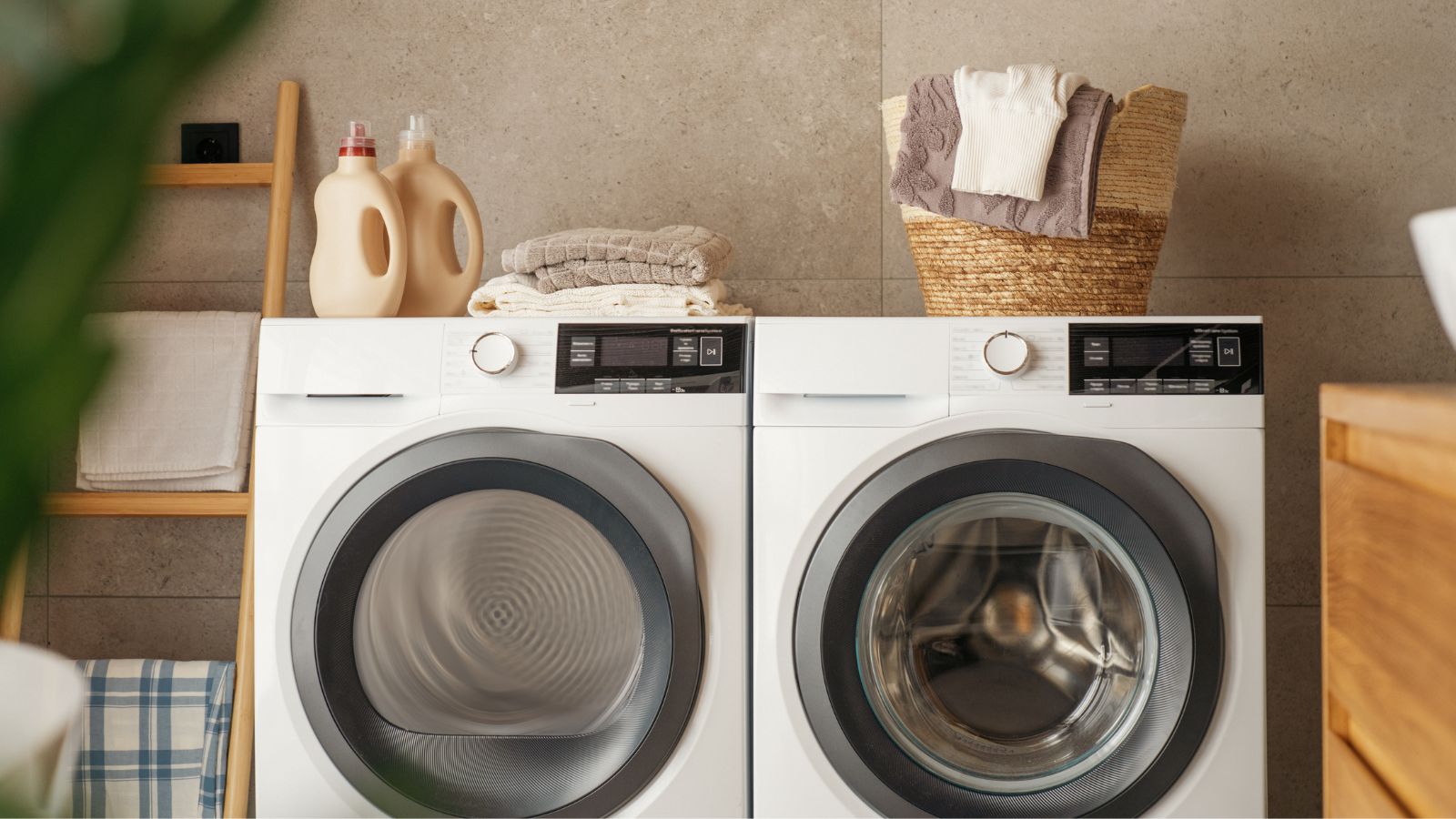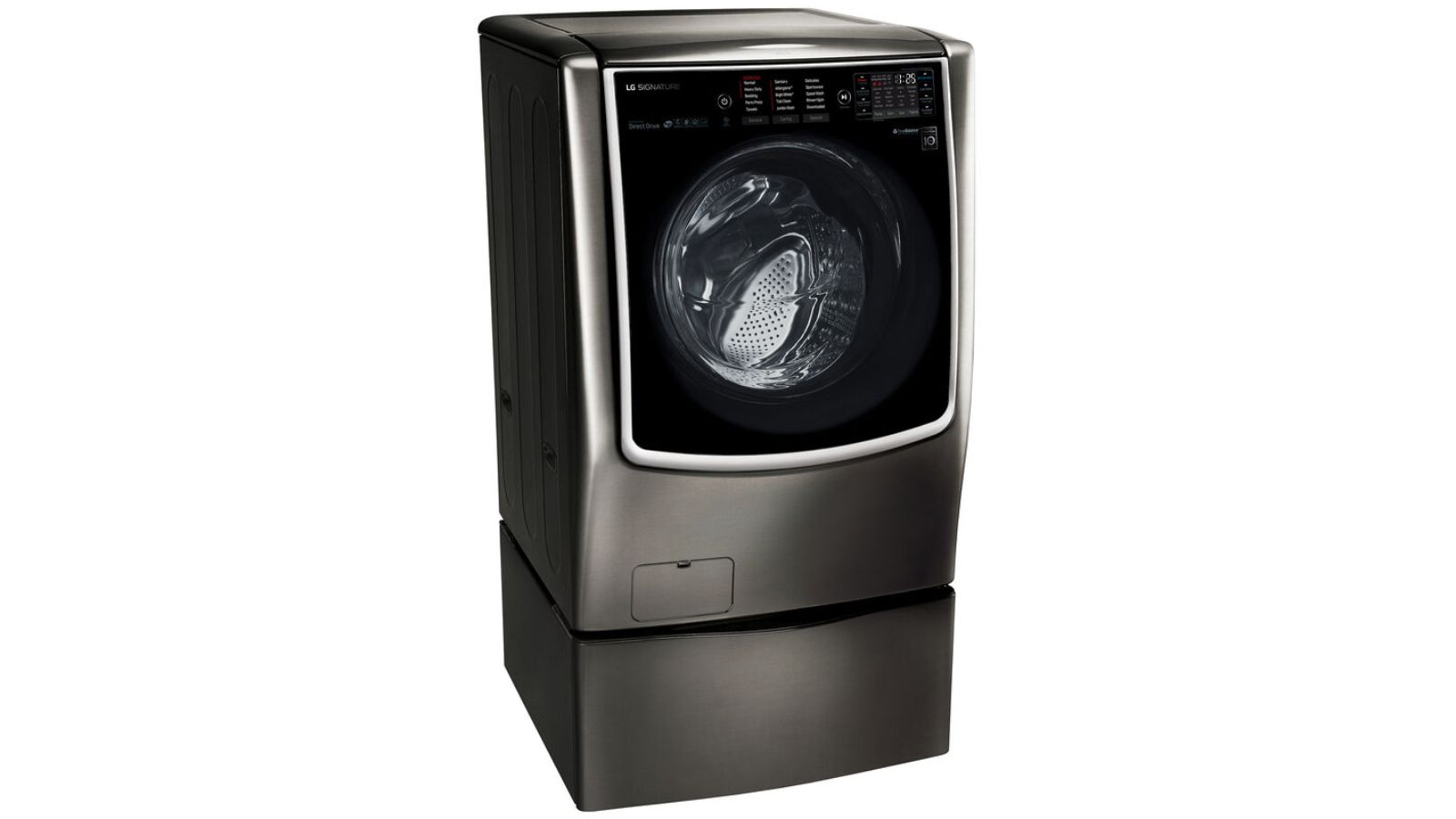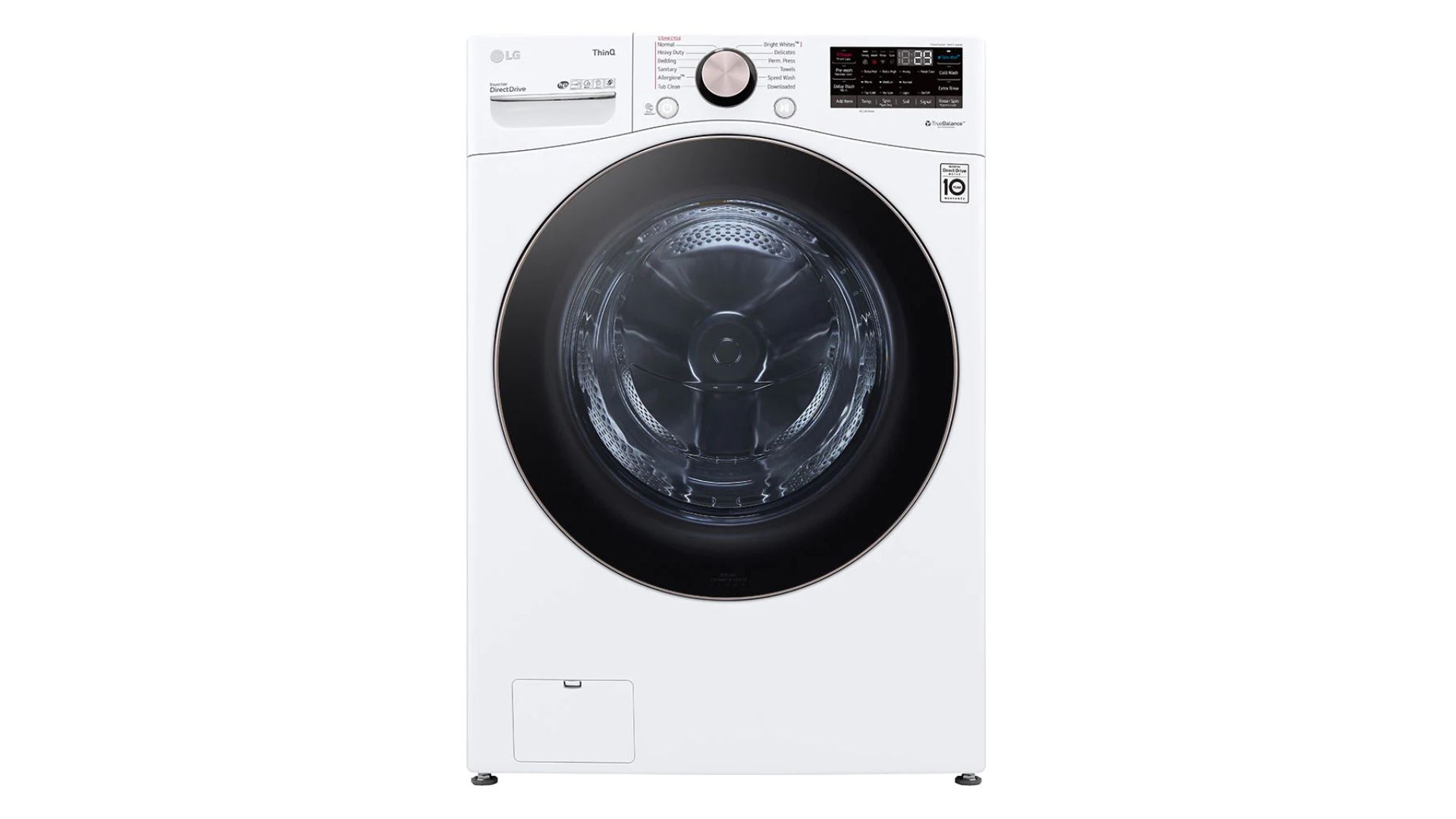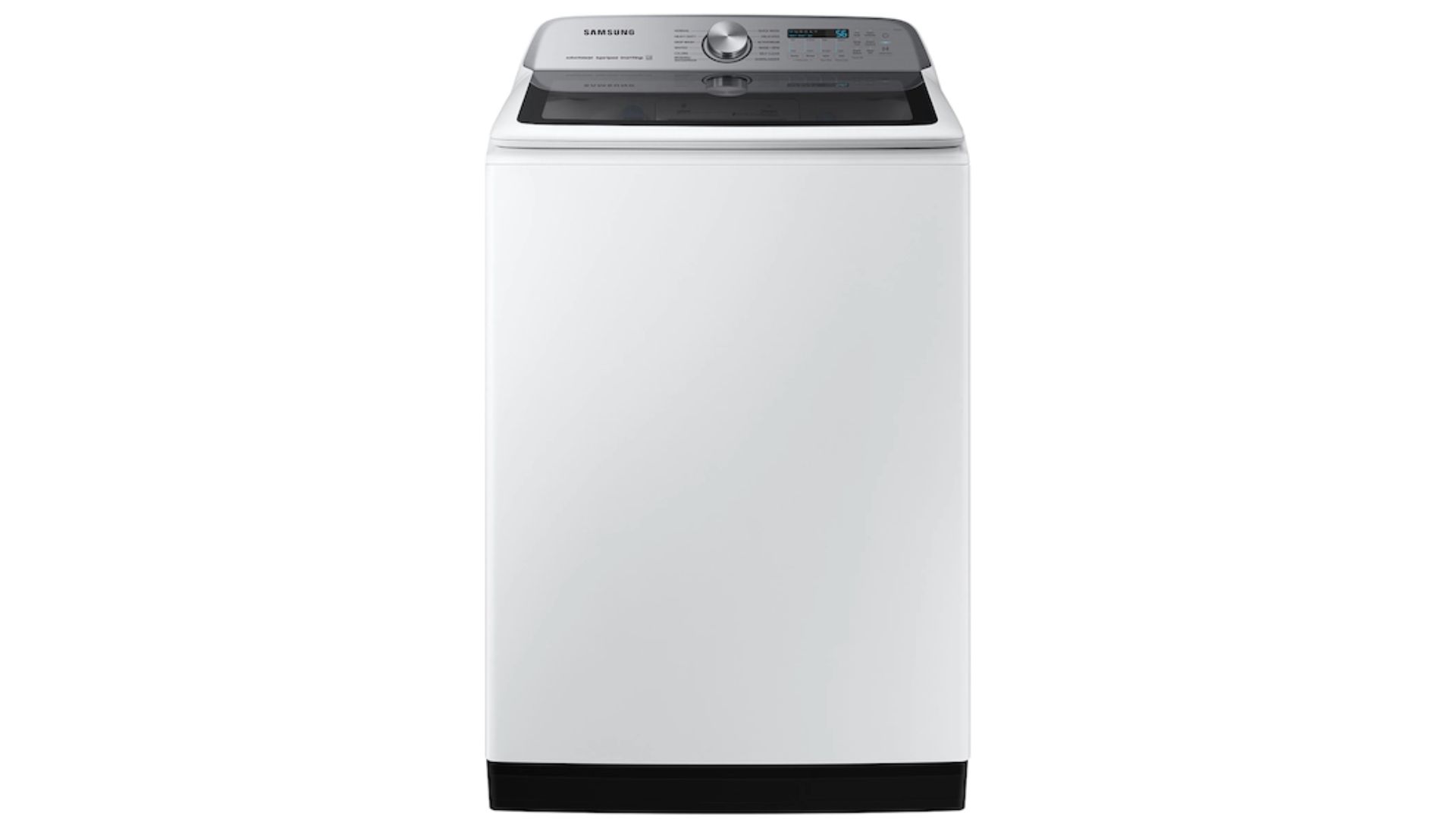How long does a washing machine last? And how to make it live longer, according to experts
Keep your machine in top condition with these insights from plumbing experts


Design expertise in your inbox – from inspiring decorating ideas and beautiful celebrity homes to practical gardening advice and shopping round-ups.
You are now subscribed
Your newsletter sign-up was successful
Want to add more newsletters?

Twice a week
Homes&Gardens
The ultimate interior design resource from the world's leading experts - discover inspiring decorating ideas, color scheming know-how, garden inspiration and shopping expertise.

Once a week
In The Loop from Next In Design
Members of the Next in Design Circle will receive In the Loop, our weekly email filled with trade news, names to know and spotlight moments. Together we’re building a brighter design future.

Twice a week
Cucina
Whether you’re passionate about hosting exquisite dinners, experimenting with culinary trends, or perfecting your kitchen's design with timeless elegance and innovative functionality, this newsletter is here to inspire
Although home appliances don’t have an expiration date, per se, there comes a time when they eventually stop working as efficiently – so how long does a washing machine last?
The answer is complex. For instance, how you treat your machine – how often you clean the washing machine and how many common washing machine mistakes you might make – can all affect how long your machine serves you.
This is how to work out when your machine is on the way out, and how to make yours last longer, according to plumbers.
How long does a washing machine last?
Even the best washing machines will give in eventually, but it is possible to extend their lifespan.
On average, a washing machine used correctly will last around 10 to 13 years, says Tanya Klien, CEO at Anta Plumbing, although this is largely affected by how you use it.
‘Those who do a couple of laundry loads once a week are going to keep their washer much longer than those who do two loads a day,’ she explains. ‘Those who wash standard clothes are not going to have the repair problems that those who are constantly washing things like sports uniforms and greasy work wear.’

A washing machine can also be worn down by improper use when doing laundry, Ron Shimek, appliance expert and president at Mr. Appliance, a Neighborly Company, adds. Common laundry mistakes such as using too much detergent, overloading your machine, and not allowing your washing machine to air out between cycles are not just damaging to your garments – these factors also wear down the internal components of your appliance, he explains.
Design expertise in your inbox – from inspiring decorating ideas and beautiful celebrity homes to practical gardening advice and shopping round-ups.
‘Also, where you place the washer can make a difference. A non-climate-controlled room like an outdoor laundry room garage or unfinished basement can shorten a washer's lifespan,’ Ron warns.

There are a few tell-tale signs your washing machine needs to be replaced, continues James Wilson, consultant at Repipe Fitting. Some of the first indications may include excessive noise, leaks (no matter how small), and consistent underperformance despite looking after and cleaning your machine regularly, he shares. This could result in clothes not being washed properly, bad odors that don't go away with cleaning, and a build-up of soap residue that is not washed away.
James Wilson is a seasoned plumbing expert with over two decades of experience in the field. Known for his exceptional knowledge and skills in plumbing systems, he has become a go-to authority for all things related to residential and commercial plumbing.
How to make a washing machine last longer
Luckily, making a washing machine last longer is simple and requires minimal effort.

1. Avoid anything that makes your machine work harder
It may sound obvious, but avoiding overloading your washing machine and cutting back on laundry detergent are some of the simplest ways to ensure your washing machine lasts, plumbing expert Tanya Klien says:
‘It's important to not abuse your washer to keep it running longer. By that, I mean don't overload it with laundry, quilts, and blankets. You can wash a full load but don't overstuff it. Stuffing it gets it off balance and wears out parts faster,’ she explains.
2. Place your washing machine in the right spot
Washing machine placement mistakes are some of the most common reasons for a machine deteriorating over time.
Your machine needs to be on a flat surface where it is not subject to constant temperature fluctuations and has space to breathe, explains Millie Hurst, Solved section editor for Homes & Gardens. This means leaving it in an uninsulated garage or basement is out.

Millie Hurst is Section Editor at Homes & Gardens, overseeing the Solved section, which provides readers with practical advice for their homes. Millie has written about and tried out countless cleaning and DIY hacks in the six years since she became a journalist, and has worked in both London and New York.
3. Inspect your washing machine regularly
It is best to start with knowing how often to clean a washing machine, but it can also be a good idea to give your machine a once-over every month or so to check for signs of age or damage, the experts at North Metro M Plumbing continue.
Check things such as the hoses for bulges and cracks, replacing them every three to five years to keep your machine in top condition, they suggest. Check the door seals and gasket for similar signs of wear and clean them using a washing machine cleaner, such as Dr Beckmann, Service-It Washing Machine Cleaner, from Amazon, to help remove mold and mildew.
Finally, clean the washing machine filter. Leaving this blocked up can cause your washing machine to overwork, or run less efficiently, affecting both your laundry load and your appliance.
4. Run a diagnostic to check for unseen damage
Modern washing machines are less complicated than you might think, and many can run their own diagnostics, reveals Tanya Klien, plumbing expert:
‘Each brand has a way for you to operate the diagnostic to determine what could be the problem. Typically, it involves a series of button presses and turning the machine to specific modes. You can look in your instruction book to find out how to get to the diagnostic on your specific machine.
Once you get into the diagnostic, write down the codes it gives you and hand those to the repair professional. They know what each code means and that will help them fix your washer faster and easier.’

Our choice for large homes, It'll be hard to find a washer with more than the 5.8 cu ft capacity at the same quality as this excellent washer. It's convenient and efficient.

For a smart, capable washer, this is our best choice. This stylish and space-efficient washer is ultra-sensitive to every load.

Rated our best top load washer, this straightforward and stoic washer is ideal for big cleans. It loads from the top and has a range of bespoke features.
FAQs
How often should you service a washing machine?
Experts suggest it is worth checking over and cleaning your washing machine at least once per month. This will help to keep your machine smelling fresh, prevent a build-up of mold and mildew that can transfer to clothing, and ensure nothing is broken or damaged that can become a bigger problem later down the line – such as checking seals for signs of wear and tear that could create a leak.
Is it worth repairing a 15-year-old washing machine?
When a washing machine gets old, it is often worth replacing the machine rather than repairing it. At this age, your appliance is likely to need continuous repairs, meaning it is more cost-effective to buy a new appliance altogether – plus a new machine will likely be more energy efficient and prove better at washing your clothes, making it a worthwhile investment.
A common mistake many of us make is assuming that the washing machine timer adding time on during a laundry cycle is a sign our machine needs replacing, but don't mistake your washing machine lying to you about the cycle duration as a sign of damage.
This is a good thing and is usually a sign your washing machine is working correctly to detect the soil levels of your laundry and ensure it is all rinsed away before unlocking the door. Only when your machine stops lying to you and your clothes are still soapy, or it begins adding more than half an hour onto your cycle do you want to consider a service.
After all, outdated appliances could be raising your energy bills.

Chiana is Homes & Gardens’ kitchen appliances editor. With a lifelong passion for cooking and baking, she grew up experimenting in the kitchen every weekend with her baking-extraordinaire Mom, and has developed a great understanding of how tools and appliances can make or break your ideal relaxing kitchen routine.